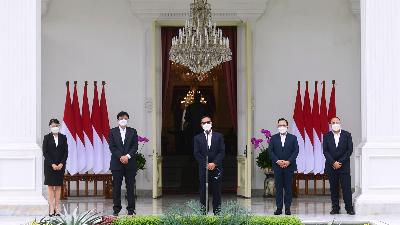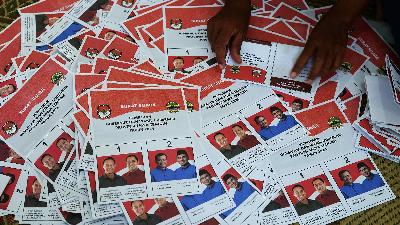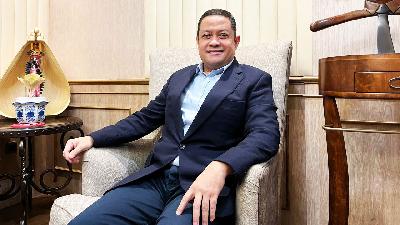The Research Agency Political Hostage
Monday, November 11, 2024
The future of BRIN is uncertain in the administration of Prabowo Subianto. It is caught up in a political deal with the PDI-P.
arsip tempo : 174569539731.

IN the matter of the positioning of its research institutions and their researchers, Indonesia is totally different from many other countries. The research agency, which should be the main asset for scientific research and development, has become useless because it is shackled by political interests.
The National Research and Innovation Agency (BRIN), established in the era of President Joko Widodo, is an example of a mistaken government attitude. It was sidelined when President Prabowo Subianto formed his new cabinet and established new bodies. And BRIN Chief Laksana Tri Handoko was not invited along to the recent Red and White Cabinet gathering in Magelang, Central Java.
The lack of clarity regarding the status of BRIN was already apparent when the nomenclature of government was changed. The Ministry of Education, Culture, Research and Technology was split into three, namely the Ministry of Elementary and High School Education, the Ministry of Higher Education, Science and Technology, and the Ministry of Culture. In terms of authority, BRIN should come under the Ministry of Higher Education, Science and Technology.
But BRIN’s future is even less certain because right from the outset, Minister of Higher Education, Research and Technology Satryo Soemantri Brodjonegoro opposed the integration of a number of research agencies such as the Indonesian Institute of Sciences (LIPI), the Agency for the Assessment and Application of Technology (BPPT), the National Institute of Aeronautics and Space (Lapan) and the National Nuclear Energy Agency (Batan) into BRIN. He claims that the merger of research agencies that have their own identities, functions and cultures will cause problems and damage.
There were many problems with the decision to integrate 72 research agencies into BRIN, and it was rife with political interests. Jokowi approved the establishment of BRIN solely to please the Indonesian Democratic Party of Struggle (PDI-P), which had been involved in the design of the agency from the start. Megawati Sukarnoputri, the General Chair of the PDI-P, was appointed Chair of the BRIN Steering Committee.
The entry of Megawati also resulted in a further decline in BRIN’s performance. The proposal of forcing the Pancasila ideological aspect into the world of science and technology means that researchers are not free to decide the themes of their research. However, the main requirement for research is academic freedom, and also freedom from ideology. Directing research along the lines of a particular ideological interest means there is less room for innovation.
The disarray in the establishment of BRIN was accompanied by government policies that continually neglect to provide sufficient funding for research. Ideally, according to the standards set by the United Nations Educational, Scientific and Cultural Organization (UNESCO) and the World Bank, a country’s research budget should be 1 percent of the gross domestic product (GDP). This means that if Indonesian GDP at 2023 prices is Rp20,892.4 trillion, the ideal level of research funding should be Rp208 trillion. However, of BRIN’s total 2023 budget of Rp6.5 trillion, only Rp2.2 trillion was allocated for national research. The remainder was for operational costs such as employee salaries and the maintenance of vehicles and buildings.
Prabowo Subianto should be more resolute in deciding on the future of BRIN. As head of government, he has full authority, without needing to communicate with the PDI-P, to ensure that BRIN retains its current form, and to replace the chair and members of its Steering Committee. Conversely, he could dissolve BRIN and restore the dozens of research institutes to the status they had before the merger.
At a time when our science and technology is being left behind, the government must push for the existence of a quality research agency, not continue to allow it to be held hostage to political interests.











